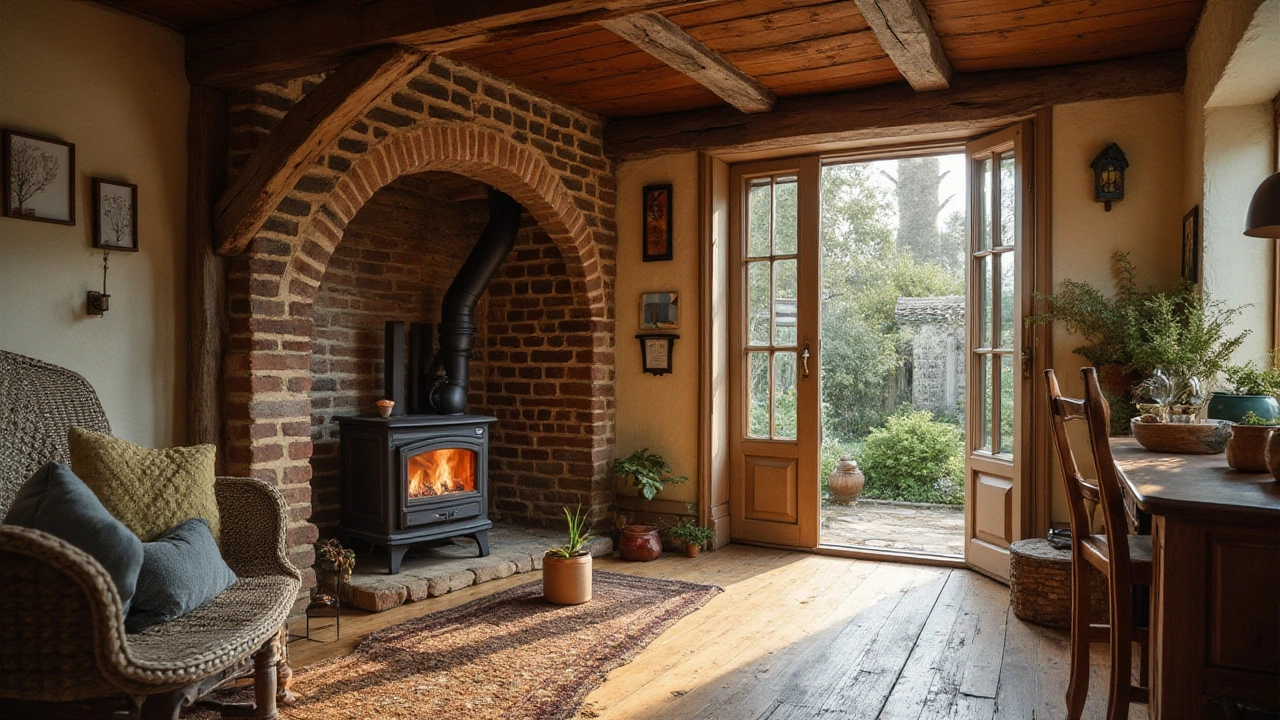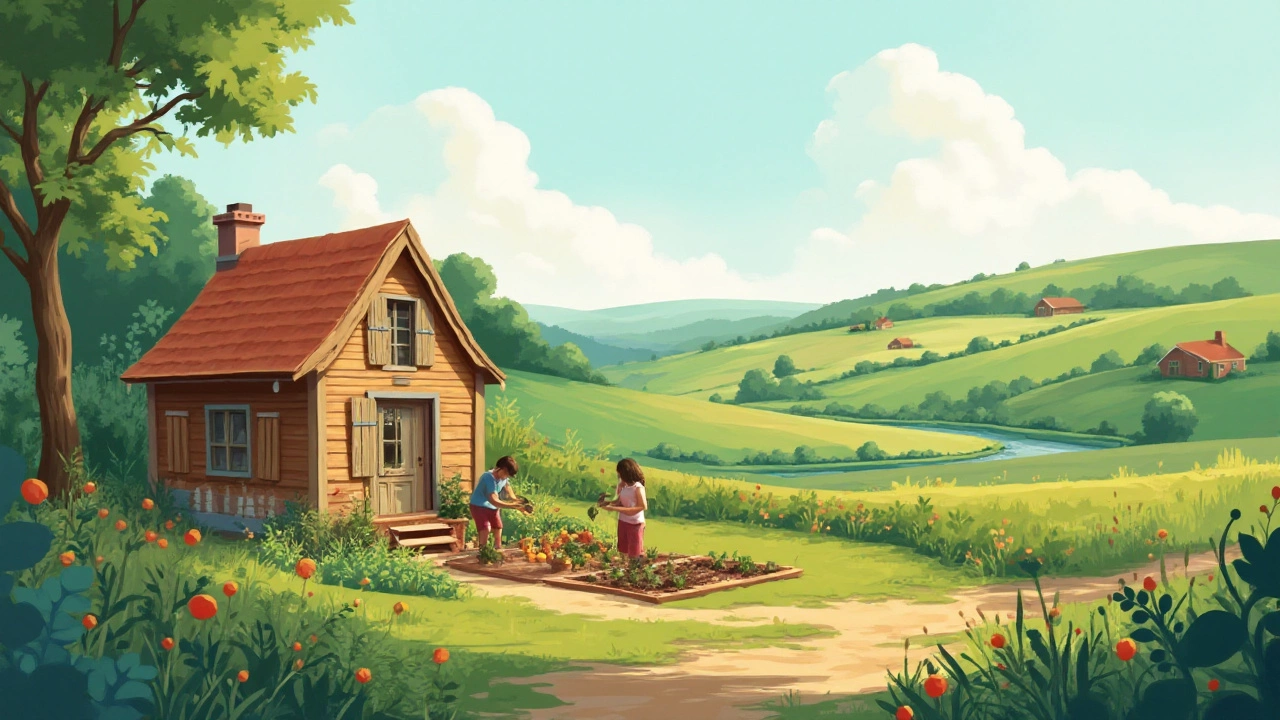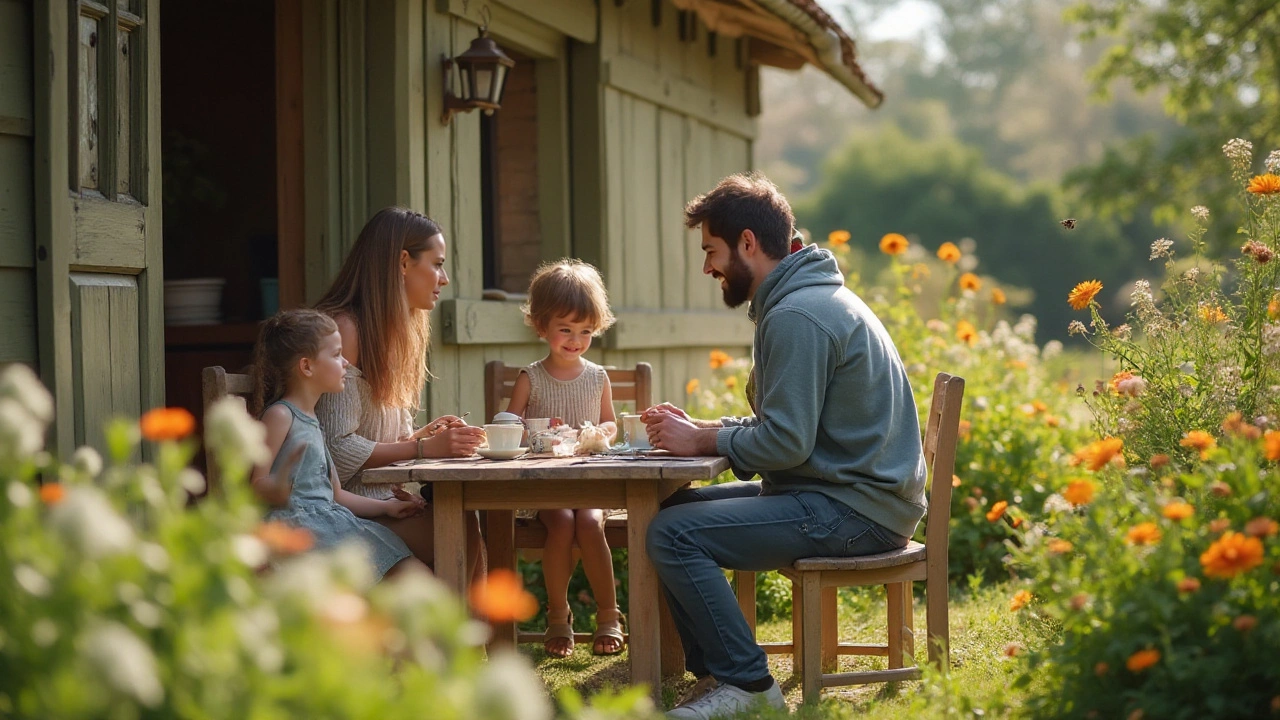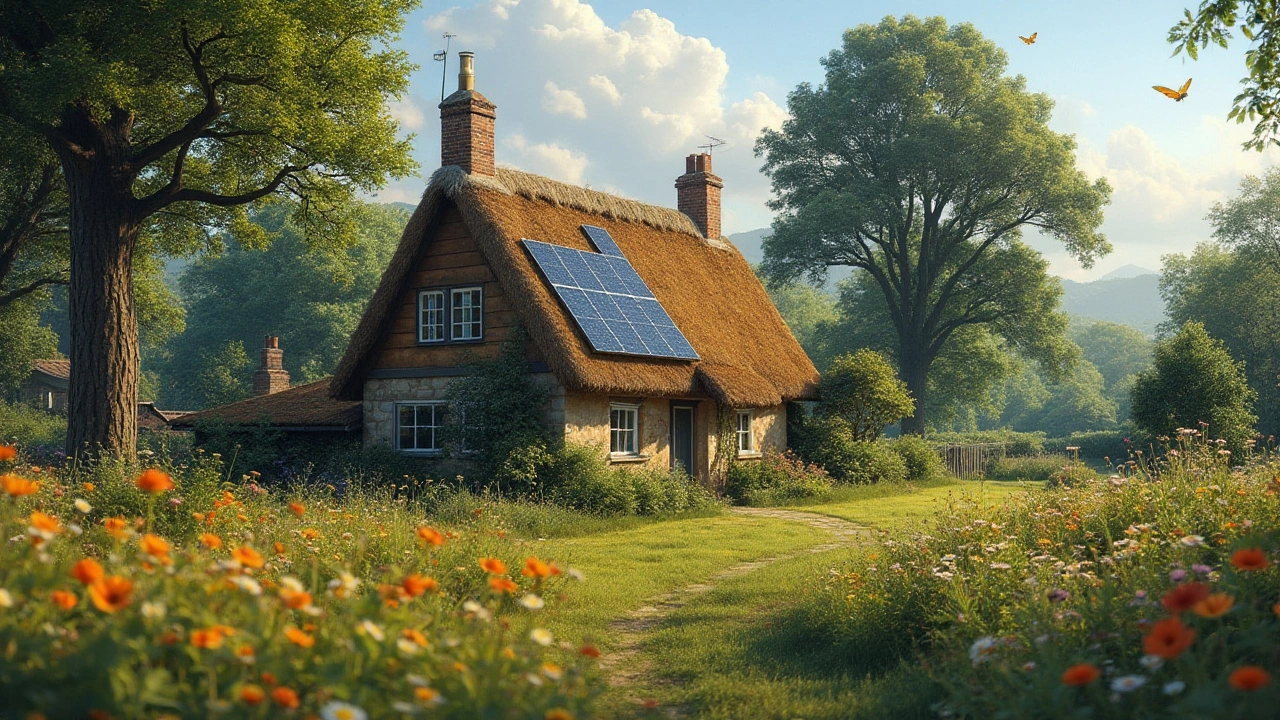Cottages have long captured the imagination as idyllic sanctuaries nestled amidst nature. In recent years, these charming retreats have gained traction as sustainable living options. With their cozy structures and often eco-friendly designs, cottages are emerging as a beacon of simpler, greener living.
Before diving into cottage life, it's important to understand its essence. It's more than just dwelling in a smaller space; it's about embracing a lifestyle that's closer to nature and more sustainable. Imagine waking up to the sound of birds chirping, surrounded by lush greenery, with the knowledge that your home treads lightly on the earth—it's a dream that's becoming a reality for many.
Whether you're drawn to their aesthetic appeal or the call of a reduced carbon footprint, living in a cottage can indeed be enticing. Still, like any significant lifestyle shift, there are factors to consider to make informed choices.
- The Allure of Cottage Living
- Sustainability Benefits
- Challenges and Trade-offs
- Tips for Embracing Cottage Life
The Allure of Cottage Living
Imagine the peaceful sound of a gentle breeze rustling through the leaves outside your window and the sight of early morning sunlight filtering softly through rustic wooden frames. Such is the everyday charm of cottage living, a lifestyle that combines simplicity, sustainability, and serene beauty. These cozy homes often evoke memories of a time when life moved a little slower, filled with moments spent on country lanes or beside a charming garden path.
Why do cottages captivate the hearts of so many? Part of the intrigue lies in their architectural charms. Many cottages showcase classic designs, from quaint clapboard-sided homes nestled in the New Zealand countryside to picturesque thatched-roof cottages straight out of a storybook. Such homes strike a perfect balance between intimacy and aesthetic appeal. And it's not just about looks. Cottages are practical too. Their compact size, often under 1,000 square feet, promotes a lifestyle of mindfulness and minimalism, encouraging inhabitants to cherish what truly matters. With less space comes less clutter, fewer items to manage, and ultimately, more peace of mind.
But aesthetics and practicality aren't the only reasons people are drawn to cottages. There's also a sense of connection to the environment with these homes. Often situated in areas brimming with natural beauty, living in a eco-friendly home like a cottage fosters a unique relationship with the natural world. From waking to the call of native birds to enjoying evenings surrounded by lush greenery, residents are invariably drawn into the rhythms of the natural surroundings. This close-knit bond with nature can significantly enhance mental well-being, providing a respite from the stress and bustle of modern urban life.
Moreover, the cottages' growing popularity overlaps with a movement toward sustainability. As noted by the environmental journalist McKay Jenkins, "In a world increasingly marked by ecological awareness, the appeal of a lifestyle that offers both simplicity and sustainability is more relevant than ever." Thanks to their smaller footprint, these homes consume less energy, making it easier to incorporate energy-efficient solutions such as solar panels or rainwater collection systems. Architects and builders are developing innovative designs that integrate green technologies seamlessly, making modern cottages both charming and kind to the earth.
There's a magical quality in the balance that cottages strike between practicality and romance. They invite us to breathe deeply, pause, and experience the simple pleasures life offers. For some, this might mean tending to a herb garden or enjoying a cup of tea by the fireplace. For others, the allure may lie in creating a harmonious interior that reflects personal tastes with sustainable furnishings and decorations. Regardless of individual preferences, the life a cottage cultivates is undeniably enriched by the careful choices that go into making a home sustainable, serene, and uniquely one's own.

Sustainability Benefits
When it comes to living in a cottage, its potential for sustainability often shines through as a prominent advantage. These quaint abodes are typically smaller than traditional houses, which inherently reduces their energy consumption. The reasoning is simple: less space requires less heating and cooling, and that ultimately means a lower carbon footprint. A focused study on energy efficiency by the U.S. Department of Energy indicates that homes with less square footage can be a significant part of reducing household energy usage. This makes cottages a smart choice for those looking to lessen their environmental impact.
Additionally, many eco-friendly cottages incorporate sustainable building materials like reclaimed wood and insulated panels, which help to conserve resources and minimize waste. It is common to see solar panels adorning the roofs of these humble residences, enabling homeowners to generate their own renewable energy. According to a report by the International Renewable Energy Agency, the adoption of solar panels has increased by over 70% in domestic homes over the past decade, reflecting a growing trend towards green living solutions.
"Cottages not only minimize your ecological footprint but also reconnect you with the cycles of nature," remarks environmental architect Sarah Dineen. "Living in a compact space encourages a mindful approach to resource consumption, turning sustainability from a buzzword into a tangible lifestyle choice."
Waste reduction is another aspect where tiny homes excel. With limited storage space, residents are often prompted to adopt minimalism, reducing clutter and unnecessary consumption. Composting toilets and greywater systems are frequently implemented in these homes, facilitating eco-friendly waste management. Such practices align with global sustainability goals, encouraging a move towards circular economies where resources are continuously repurposed.
To really understand the impact, let's consider the statistics: a typical eco-friendly cottage uses only about 30% of the water that a standard household does. This is due not only to the size but also the integration of efficient appliances and water-saving measures. A survey conducted in 2023 by the Living Smaller advocacy group found that more than 60% of cottage dwellers reported over a 50% reduction in their monthly utility bills. These savings underscore the financial benefits tied to environmental responsibility.
In conclusion, the sustainability benefits of living in a cottage are manifold. From reducing energy consumption to promoting a minimalist lifestyle, cottages offer a compelling pathway to a more eco-conscious existence, allowing individuals to leave a positive imprint on the planet while enjoying the simple pleasures of life. The shift towards these small but mighty homes continues to gain momentum, driven by a collective desire for both environmental stewardship and personal wellbeing.

Challenges and Trade-offs
Embracing the cottage living lifestyle comes with its fair share of challenges and trade-offs. While the allure of simplicity and sustainability is compelling, it's essential to recognize that living in a cottage isn't all sunshine and roses. One of the most prominent challenges is the limited space. Unlike traditional homes, cottages are generally smaller, often requiring creative approaches to storage and organization. This can be particularly tricky for families or individuals accustomed to larger living spaces. Adjusting to this often involves a shift in mindset, embracing minimalism, and being highly selective about possessions. It can feel rewarding, yet challenging, to pare down belongings to fit a tiny home without sacrificing comfort.
Additionally, cottages are frequently situated in rural or semi-rural locations, which can mean limited access to amenities and services typically found in urban areas. This remoteness can lead to a sense of isolation for some, especially for those used to the hustle and bustle of city life. On the other hand, such locales often offer breathtaking natural beauty, providing a peaceful environment that can be immensely beneficial for one's well-being. However, having to travel further for groceries, healthcare, or social activities might not suit everyone's lifestyle. Potential residents must weigh the benefits of serenity against the conveniences of urban living.
Heat retention and energy efficiency can sometimes pose additional challenges in eco-friendly cottages. While many modern cottages are designed with sustainability in mind, including features like solar panels and rainwater collection systems, older structures might not boast the same eco-credentials. Retrofitting these older cottages with insulation and energy-efficient appliances can be an investment both financially and time-wise. Yet, for those passionate about eco-friendly living, these upgrades can significantly reduce the carbon footprint of their home, making such trade-offs worthwhile. A study by the Green Building Council found that well-insulated, eco-conscious homes could save between 20% to 30% of annual energy costs.
The prospect of living in a sustainable cottage might also necessitate a consideration of property maintenance. Keeping a charming property in pristine condition requires effort, especially in regions prone to harsh weather. Cottages, often constructed using natural materials like wood or stone, may demand more regular upkeep than their urban counterparts. This can include anything from repairing roof tiles to treating timber for mold and pests. These ongoing maintenance tasks can be a rewarding experience for DIY enthusiasts but may feel like a constant project for others.
Lastly, there is the matter of connectivity, both digital and physical. While technological advancements have brought internet and mobile networks to many remote regions, there can still be limitations in certain cottage areas. Reliable internet is crucial, particularly if one is working from home or reliant on streaming services for entertainment. Therefore, it's essential to verify connectivity options before fully committing to a cottage living lifestyle. As British author Alain de Botton remarked
"For most of history, the countryside was a place to escape from, not escape to."This quote resonates with the notion that while cottage living has its advantages, it also comes with inevitable trade-offs that must be thoughtfully addressed.

Tips for Embracing Cottage Life
Transitioning to cottage living can feel like stepping into a world brimming with peace and simplicity. As you embark on this journey, there's an art to embracing the cozy nooks and embracing the space constraints that such an environment might present. One of the first steps is to cultivate a mindset that appreciates quality over quantity. Trade expansive living for meaningful possessions that serve real purposes in your life.
When settling into an eco-friendly home, energy efficiency becomes a vital focus. Embrace smart technology that aids in monitoring and reducing energy usage while maintaining comfort. Consider utilizing solar panels or rainwater catchment systems that enhance sustainability while also offering long-term savings. The integration of such technologies aligns with the broader philosophy of small-scale, sustainable living that is central to cottage life.
Customization plays a pivotal role in making a cottage truly yours. From selecting colors that reflect personality to incorporating unique furniture pieces that maximize utility, the choices are endless. Clever storage solutions are a must; think built-in shelves, multipurpose furniture, and under-bed containers to optimize every inch of space. These modifications contribute not only to a practical living arrangement but also to a home filled with personal character and charm.
- Evaluate your storage needs and prioritize what holds sentimental value or daily utility.
- Integrate multifunctional furniture to maximize limited spaces.
- Opt for natural materials to retain the rustic essence of cottages.
- Invest in energy-efficient appliances to dovetail with sustainable living.
Living in a cottage often means connecting more intimately with nature, and this connection doesn't just stop at your doorstep. Embrace outdoor living by setting up cozy seating arrangements on porches or in gardens. A small vegetable garden or herb patch not only adds to the charm but also promotes a self-sustaining lifestyle, allowing for farm-to-table practices right in your backyard.
Psychological adaptation to such a transformative lifestyle change shouldn't be underestimated. Relinquishing the hustle and bustle of city life can take time, but the rewards include decreased stress levels and an increase in creativity as you immerse yourself in nature's rhythms.
"The simplicity of cottage living allows us to find joy in everyday tasks and appreciate the slower pace of life," notes environmental psychologist Lucy Smith.Not only does this pace contribute to mental well-being, but it also nurtures a stronger connection with the community as neighbors often bond over shared appreciation for tranquil, sustainable living environments.
Should you find yourself yearning for the charm and warmth of tiny homes, understanding the essentials is crucial for a smooth transition. The delights of living in such a home come with the crunch of space, which demands creativity and discipline. But with thoughtful approaches and innovative solutions, the transition to cottage life can not only be achievable but deeply rewarding, weaving a tale of comfort and environmental stewardship that stretches beyond the four walls.
